A prominent housing charity has warned of an “onslaught” of people unable to afford their rent, suggesting 1.7 million believe they will lose their jobs in the next three months due to the coronavirus pandemic.
Highlighting risks of spiralling debt and “needless evictions” in the summer months, new research from Shelter claims nearly one in four renters (24 per cent) in England have already seen their incomes fall or lost their jobs.
According to polling carried out by YouGov for the charity – after the government unveiled the coronavirus job retention scheme – 23 per cent also said losing their job will leave them unable to pay their rent immediately.
Download the new Independent Premium app
Sharing the full story, not just the headlines
Shelter added that 19 per cent of the 498 renters who responded said they believed it was either very or fairly likely they will become unemployed in the next three months. Using data from the Office for National Statistics, the charity estimated this would amount to 1,696,000 million private renters in England.
The organisation said that a growing number of people will be forced to rely on welfare payments for the first time due to covid-19, and urged the government to increase housing benefit so that it covers the average costs of local rents.

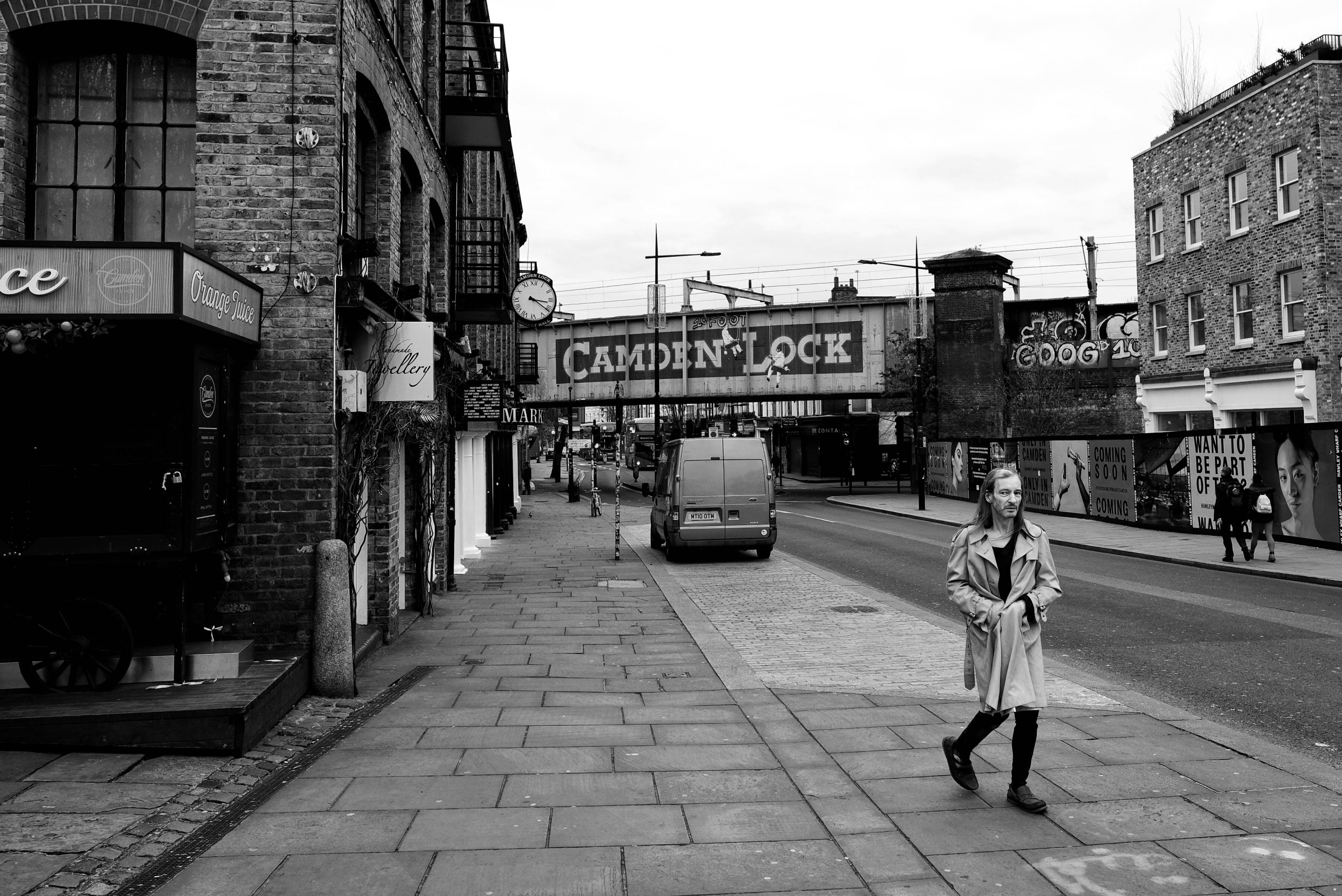
1/29
A man walks down a deserted Camden High Street
Photos Angela Christofilou
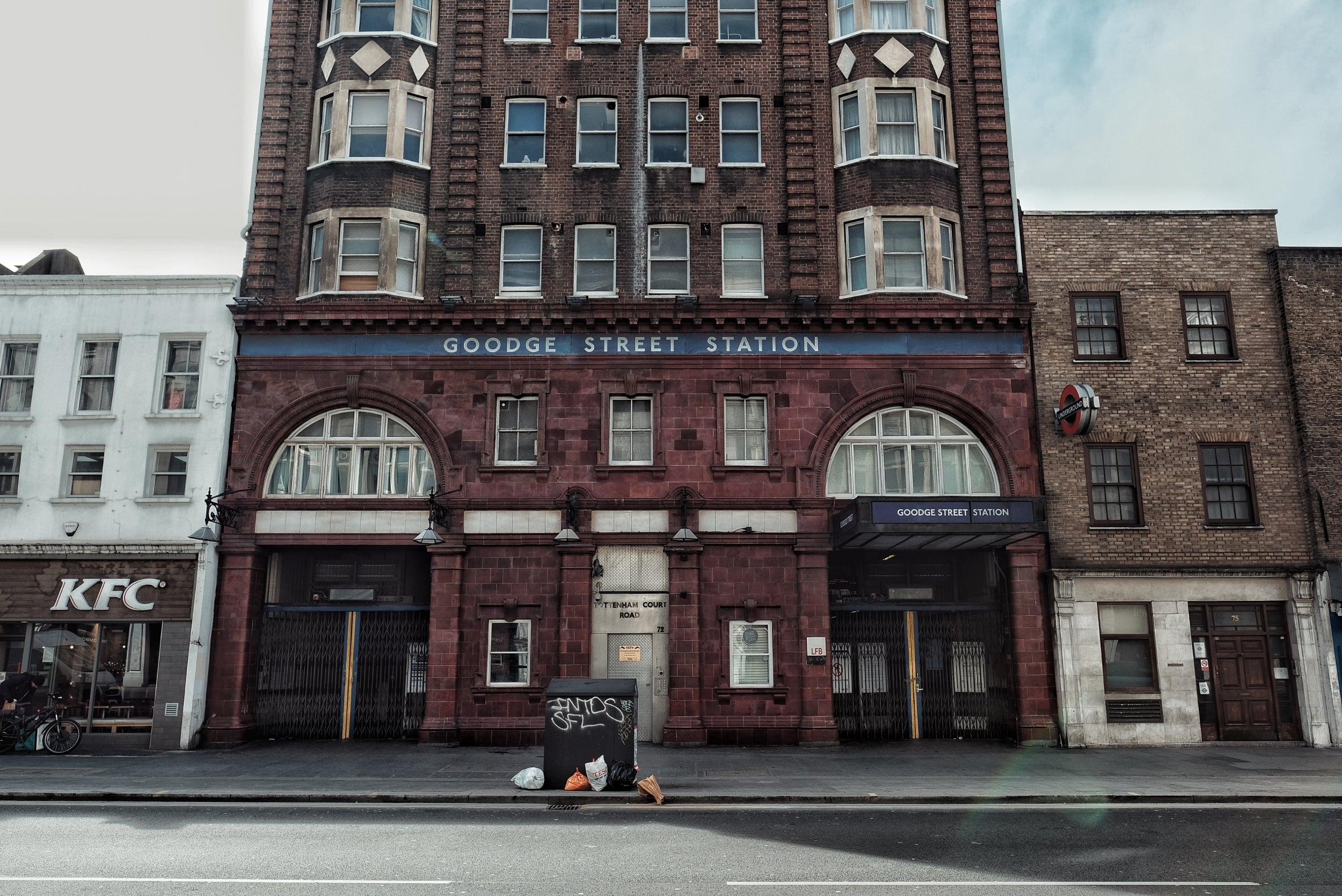
2/29
Goodge Street Station is one of the many stations closed to help reduce the spread
Angela Christofilou

3/29
An empty street in the heart of Chinatown
Angela Christofilou

4/29
People in masks in Chinatown a day after the lockdown
Angela Christofilou

5/29
A near-empty Piccadilly Circus during the first week of lockdown
Angela Christofilou
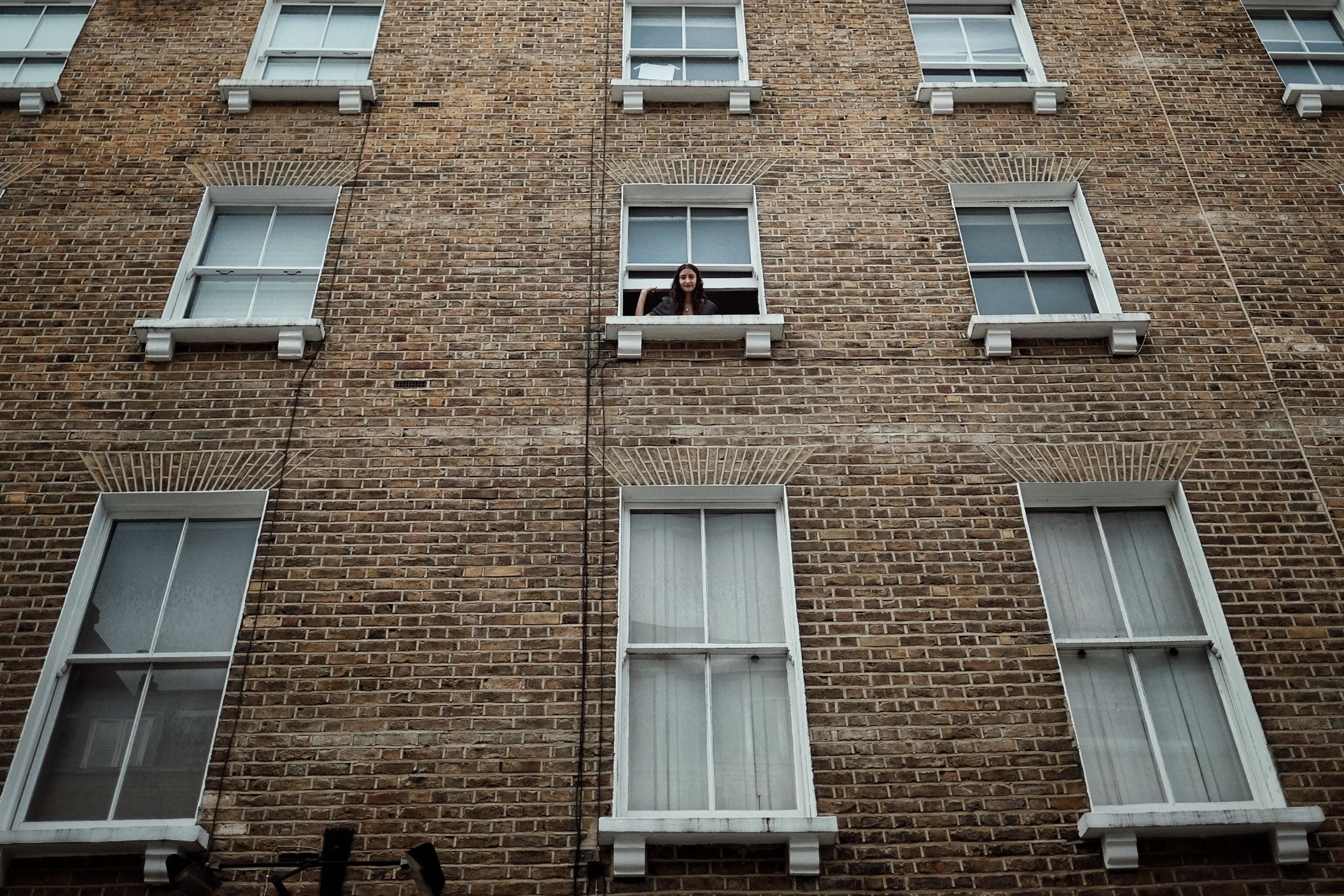
6/29
Sonja, my neighbour, who I photographed while taking a short walk. It was nice to briefly chat even from a distance
Angela Christofilou

7/29
A couple sit on the empty steps of the statue Eros in Piccadilly Circus
Angela Christofilou

8/29
Making sure I stay two-meters apart – D’Arblay Street, Soho
Angela Christofilou

9/29
A mannequin behind a shop window. UK stores have closed until further notice
Angela Christofilou

10/29
A notice displayed on a shop window in Camden
Angela Christofilou

11/29
As part of the lockdown, all non-essential shops have been ordered to close.Image from Camden High Street
Angela Christofilou
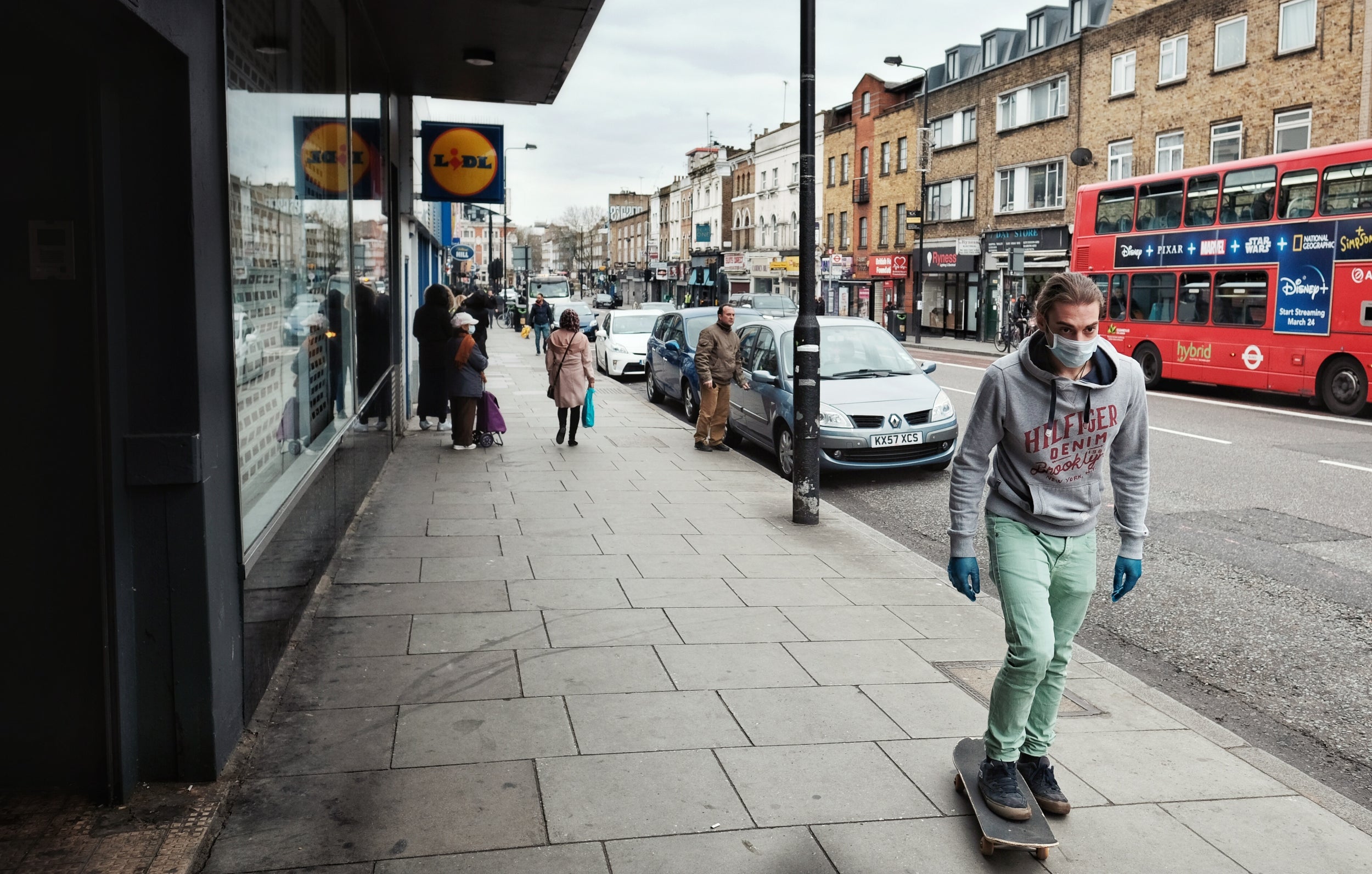
12/29
A skateboarder wearing a mask utilises his exercise allowance in the Camden area
Angela Christofilou

13/29
Communities have been coming together in a time of need
Angela Christofilou

14/29
A woman stands alone in a deserted Oxford Street. Up until a few weeks ago, on average, half a million people visited the street per day
Angela Christofilou

15/29
A couple walk hand in hand down a street in Soho, a day before the stricter lockdown was announced
Angela Christofilou
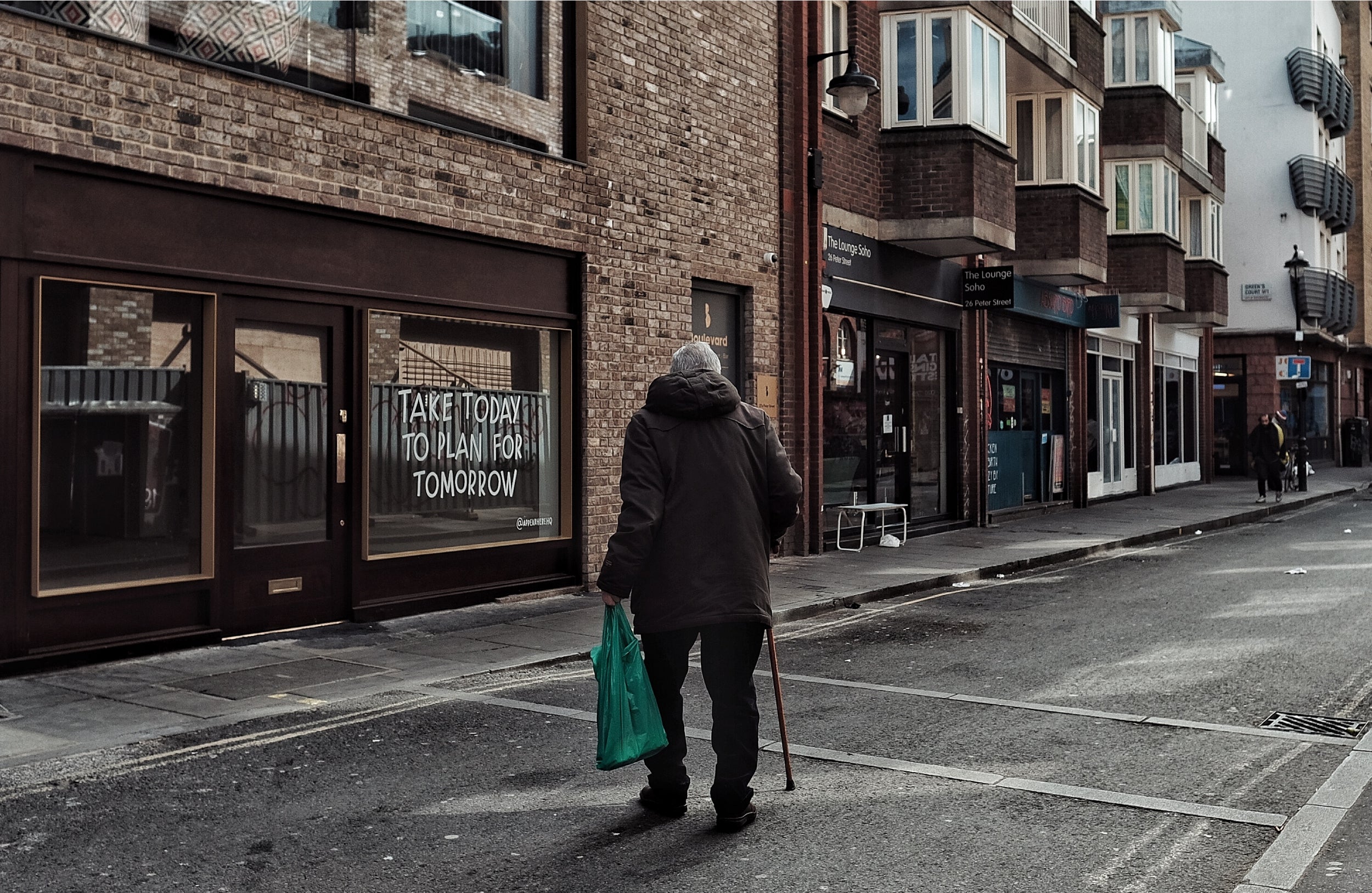
16/29
During the first week of March, shoppers focused on stockpiling necessities ahead of a countrywide lockdown
Angela Christofilou

17/29
Many supermarkers are operating a queuing system to make sure only a limited amount of customers are allowed in at anyone time
Angela Christofilou

18/29
‘Stay Safe’ – Curzon cinemas are temporarily closed under the new measures
Angela Christofilou

19/29
Pubs, restaurants and bars were ordered to shut as part of the lockdown
Angela Christofilou

20/29 Camden High Street
There are fears that coronavirus could lead to permanent closure of struggling shops
Angela Christofilou

21/29
Camden Town is eerily silent on a normal working day
Angela Christofilou
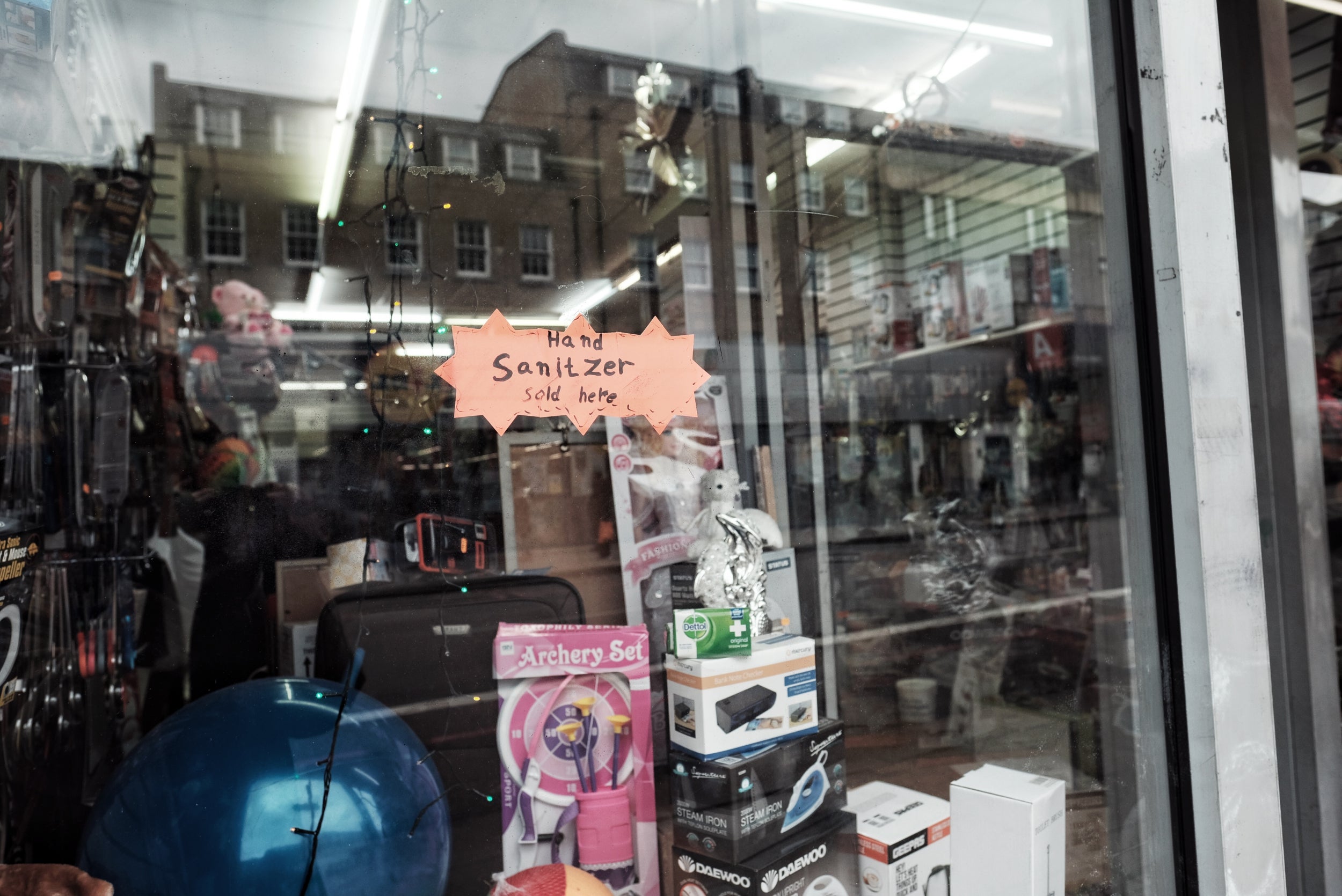
22/29
Shops and supermarkets ran out of hand sanitisers in the first week of the lockdown. As we approach the end of the second week most shops now have started to stock up
Angela Christofilou

23/29
Empty streets around Soho
Angela Christofilou
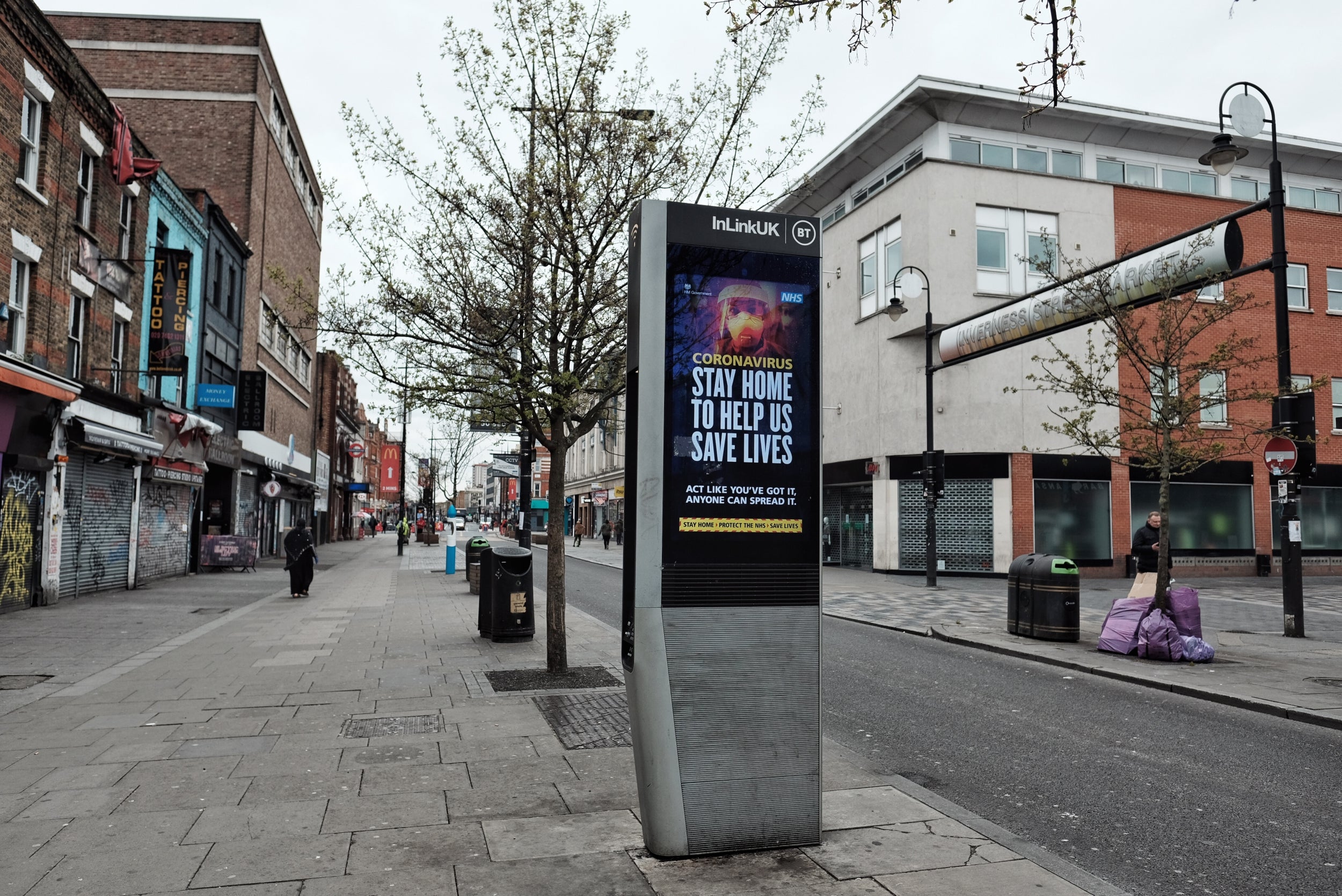
24/29
A noticeboard on Camden High Street urges the public to stay at home
Angela Christofilou
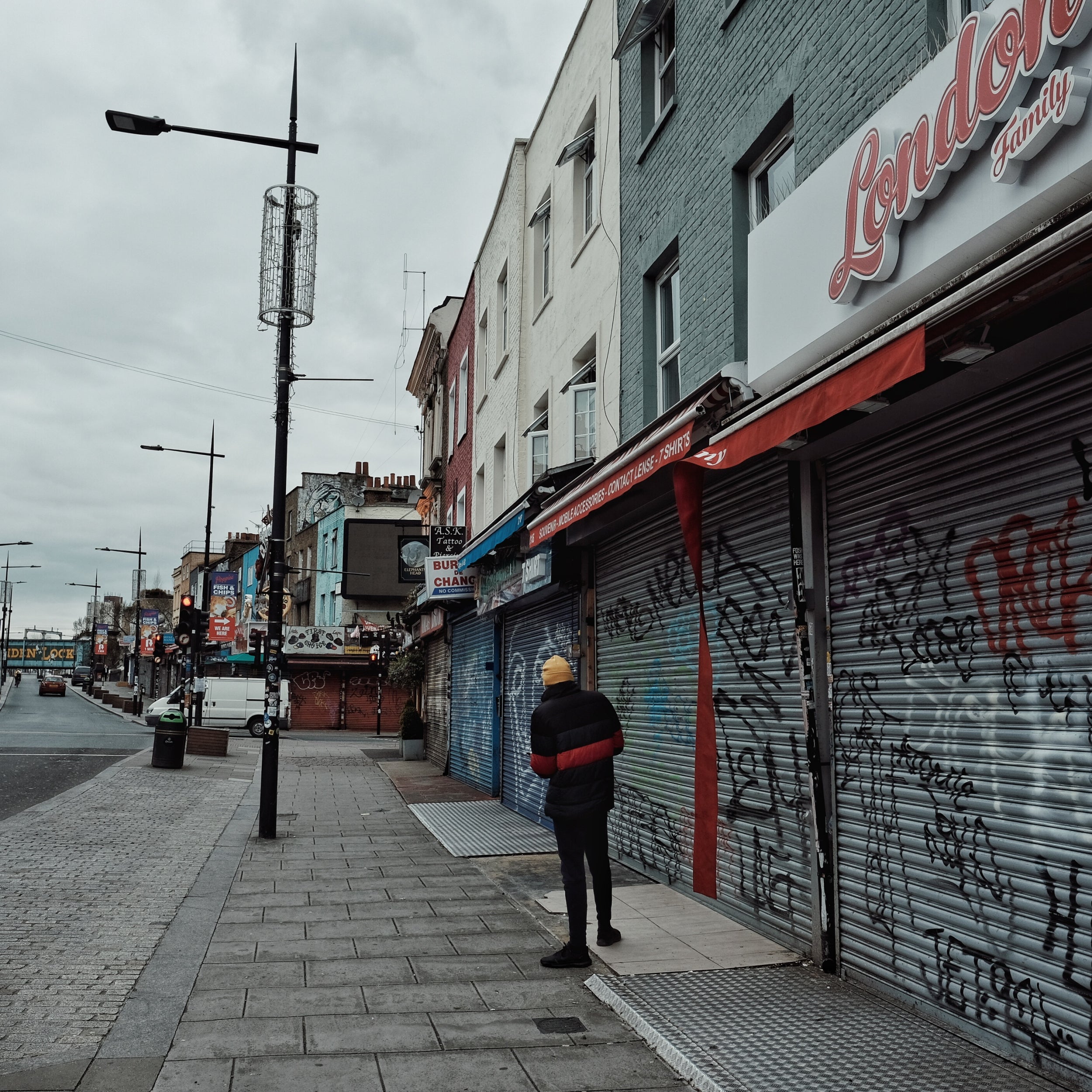
25/29
Camden High Street, one of London’s busiest tourist streets turns quiet
Angela Christofilou

26/29
Thriller Live confirmed its West End run ended in the wake of the coronavirus outbreak
Angela Christofilou

27/29
Empty and eerie Soho streets after stricter rules on social distancing announced
Angela Christofilou

28/29
A woman pauses for a cigarette on Hanway Street, behind Tottenham Court Road
Angela Christofilou

29/29
A man steps outside onto Hanway Street, that sits behind what is usually a bustling retail hub
Angela Christofilou

1/29
A man walks down a deserted Camden High Street
Photos Angela Christofilou

2/29
Goodge Street Station is one of the many stations closed to help reduce the spread
Angela Christofilou

3/29
An empty street in the heart of Chinatown
Angela Christofilou

4/29
People in masks in Chinatown a day after the lockdown
Angela Christofilou

5/29
A near-empty Piccadilly Circus during the first week of lockdown
Angela Christofilou

6/29
Sonja, my neighbour, who I photographed while taking a short walk. It was nice to briefly chat even from a distance
Angela Christofilou

7/29
A couple sit on the empty steps of the statue Eros in Piccadilly Circus
Angela Christofilou

8/29
Making sure I stay two-meters apart – D’Arblay Street, Soho
Angela Christofilou

9/29
A mannequin behind a shop window. UK stores have closed until further notice
Angela Christofilou

10/29
A notice displayed on a shop window in Camden
Angela Christofilou

11/29
As part of the lockdown, all non-essential shops have been ordered to close.Image from Camden High Street
Angela Christofilou

12/29
A skateboarder wearing a mask utilises his exercise allowance in the Camden area
Angela Christofilou

13/29
Communities have been coming together in a time of need
Angela Christofilou

14/29
A woman stands alone in a deserted Oxford Street. Up until a few weeks ago, on average, half a million people visited the street per day
Angela Christofilou

15/29
A couple walk hand in hand down a street in Soho, a day before the stricter lockdown was announced
Angela Christofilou

16/29
During the first week of March, shoppers focused on stockpiling necessities ahead of a countrywide lockdown
Angela Christofilou

17/29
Many supermarkers are operating a queuing system to make sure only a limited amount of customers are allowed in at anyone time
Angela Christofilou

18/29
‘Stay Safe’ – Curzon cinemas are temporarily closed under the new measures
Angela Christofilou

19/29
Pubs, restaurants and bars were ordered to shut as part of the lockdown
Angela Christofilou

20/29 Camden High Street
There are fears that coronavirus could lead to permanent closure of struggling shops
Angela Christofilou

21/29
Camden Town is eerily silent on a normal working day
Angela Christofilou

22/29
Shops and supermarkets ran out of hand sanitisers in the first week of the lockdown. As we approach the end of the second week most shops now have started to stock up
Angela Christofilou

23/29
Empty streets around Soho
Angela Christofilou

24/29
A noticeboard on Camden High Street urges the public to stay at home
Angela Christofilou

25/29
Camden High Street, one of London’s busiest tourist streets turns quiet
Angela Christofilou

26/29
Thriller Live confirmed its West End run ended in the wake of the coronavirus outbreak
Angela Christofilou

27/29
Empty and eerie Soho streets after stricter rules on social distancing announced
Angela Christofilou

28/29
A woman pauses for a cigarette on Hanway Street, behind Tottenham Court Road
Angela Christofilou

29/29
A man steps outside onto Hanway Street, that sits behind what is usually a bustling retail hub
Angela Christofilou
Last month, the chancellor Rishi Sunak said landlords would now have to give all renters three months’ notice if they intend to end a tenancy – a policy that will remain in force until at least September 2020.
Unlike those who have purchased property and can request a “mortgage holiday” from banks, however, millions of renters facing financial difficulty will have to seek help from landlords on an individual basis. Renters’ unions and opposition parities have previously called on the government to suspend rents throughout the coronavirus crisis.
Shelter’s chief executive Polly Neate praised the decision to temporarily suspend evictions during the pandemic, but added: “Millions of renters will be in dire straits further down the line without more government support.
“As renters lose their jobs and see their incomes hit, many will have to rely on the welfare safety net for the first time. Our services are already hearing from families in homes they could comfortably afford under normal circumstances, who are now in serious financial difficulty.
“We are facing an onslaught of people suddenly unable to afford their rent, at a time when people need to stay put and cannot safely move to a cheaper home. To avoid spiralling debt and needless evictions once the ban lifts, the government must increase the housing element of universal credit so that it covers the average cost of local rents.”
A government spokesperson said: “The government has put in place unprecedented measures to support tenants from getting into financial hardship or rent arrears, including protecting millions of jobs up and down the country and increasing universal credit and housing allowances.
“Emergency legislation is now in place so no social or private renter can be forced out of their home – with landlords unable to start proceedings to evict tenants for at least the next three months. We have the power to extend this if necessary.”


